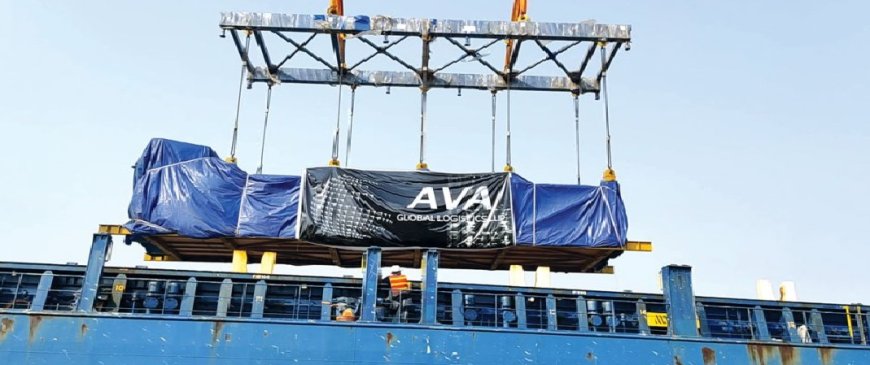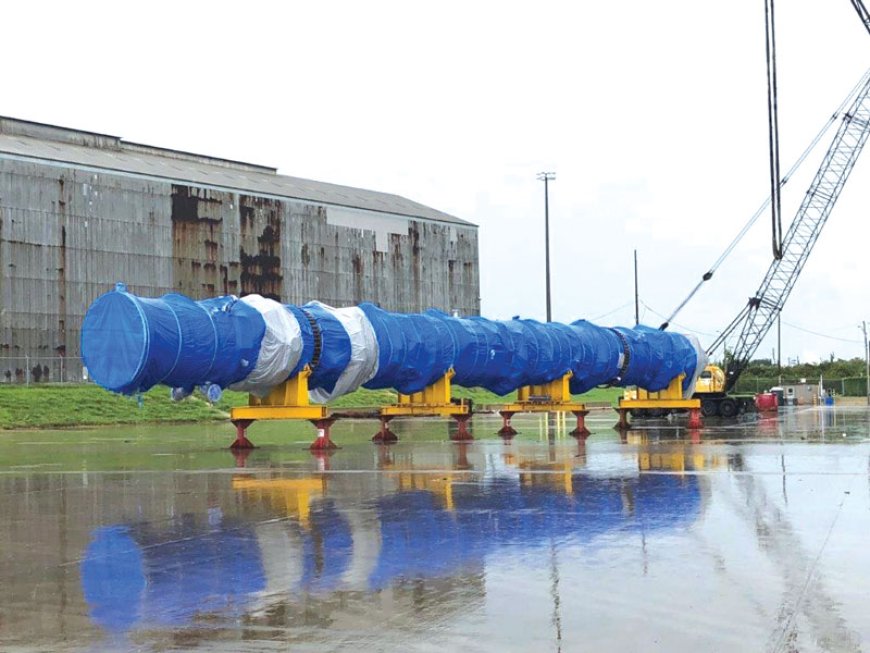MITIGATING CHALLENGES FOR SUCCESSFUL EXECUTION IN PROJECT LOGISTICS

Navigating the high-stakes arena of today's global business landscape requires the industry to confront many uncertainties and variations, particularly within the intricate domain of project logistics. Project logistics treats each venture without standardisation as unique, presenting challenges intricately woven into geography, transportability, and compliance requirements.
This field's inherent complexity is magnified by unforeseen obstacles, demanding a proactive approach to risk management. From grappling with remote locations and unpredictable terrains to addressing size constraints and fluctuating resource availability, project logistics professionals make strategic decisions to mitigate the ever-present, yet often unexpected, risks. Project logistics involves anticipation, adaption, and navigating through these unseen challenges, making it a domain where resilience and foresight become indispensable assets for successful execution.
A project logistics professional must strategically opt for transportation approaches like modular supply or stick-built supply. A project's initiation must often deal with poor visibility, compelling professionals to rely on intuition-based assumptions, data benchmarking, planning, and budgeting. The risks associated with cost overruns, shipping delays, and ambiguous documentation loom large in this scenario. The criticality of meeting delivery timelines persists despite grappling with unknowns. Strategic decision-making between modular and stick-built supply approaches enables project logistics professionals to proactively manage risks, enhancing the overall resilience and success of the logistics execution.
 Success in project logistics hinges on navigating challenges tied to geography, transportability, and compliance requirements. Transparency and visibility are crucial for proactively addressing challenges, allowing businesses to anticipate issues, source replacements, and manage customer expectations effectively. The collaborative efforts of various entities, from material suppliers to distributors are essential for the seamless execution of logistics projects. This collaborative synergy ensures a synchronised flow of resources and information throughout the supply chain, optimising efficiency. Logistics professionals can promptly address challenges by fostering clear communication and coordination among stakeholders, reducing risk. The success of logistics projects hinges on the cohesive efforts of these entities, creating a robust foundation for streamlined operations. Efficient logistics management, impacting customer satisfaction, delivery quality, and cost reduction, provides organisations a sustainable advantage. Planning and implementing logistics activities are pivotal to getting it right, and the initial step involves identifying and assessing potential risks. A comprehensive risk assessment considers internal factors, like equipment failures and labour shortages, and external factors, such as geopolitical uncertainties and weather-related disruptions.
Success in project logistics hinges on navigating challenges tied to geography, transportability, and compliance requirements. Transparency and visibility are crucial for proactively addressing challenges, allowing businesses to anticipate issues, source replacements, and manage customer expectations effectively. The collaborative efforts of various entities, from material suppliers to distributors are essential for the seamless execution of logistics projects. This collaborative synergy ensures a synchronised flow of resources and information throughout the supply chain, optimising efficiency. Logistics professionals can promptly address challenges by fostering clear communication and coordination among stakeholders, reducing risk. The success of logistics projects hinges on the cohesive efforts of these entities, creating a robust foundation for streamlined operations. Efficient logistics management, impacting customer satisfaction, delivery quality, and cost reduction, provides organisations a sustainable advantage. Planning and implementing logistics activities are pivotal to getting it right, and the initial step involves identifying and assessing potential risks. A comprehensive risk assessment considers internal factors, like equipment failures and labour shortages, and external factors, such as geopolitical uncertainties and weather-related disruptions.
Diversifying the supply chain emerges as a crucial strategy to mitigate vulnerability to disruptions. Relying on a single supplier or transportation mode increases exposure to risks. Support by technologies like the Internet of Things (IoT) and real-time tracking systems aids in making prompt decisions. Artificial Intelligence (AI) and machine learning serve as valuable tools in deciphering large volumes of data, enabling the anticipation of potential risks.
Establishing robust partnerships with suppliers, carriers, and stakeholders is vital for clear communication and coordination. Collaborative efforts within these partnerships create a platform for shared risk mitigation strategies and rapid responses to unforeseen events. Contingency plans outlining alternative routes, backup suppliers, and emergency response protocols ensure a swift and efficient response during sudden events.
Recognising the importance of insurance in warding off financial risks is imperative, emphasising the need for a strategic alliance with insurers. Compliance and meticulous documentation play a pivotal role in safeguarding against legal entanglements. A keen awareness of the regulatory landscape and investments in cutting-edge compliance management systems exemplify a forward-thinking approach to parrying legal risks.
In conclusion, precision in risk management transcends being a mere safeguard; it is the essence of triumph within the ever-evolving project logistics landscape. It not only shields against adversities but also forges a path towards a future where adaptability and foresight stand firmly as the unwavering pillars guiding the pursuit of excellence in project logistics management.
 |
Darshan Ghodawat CEO and Managing Director, AVA Global Logistics |







